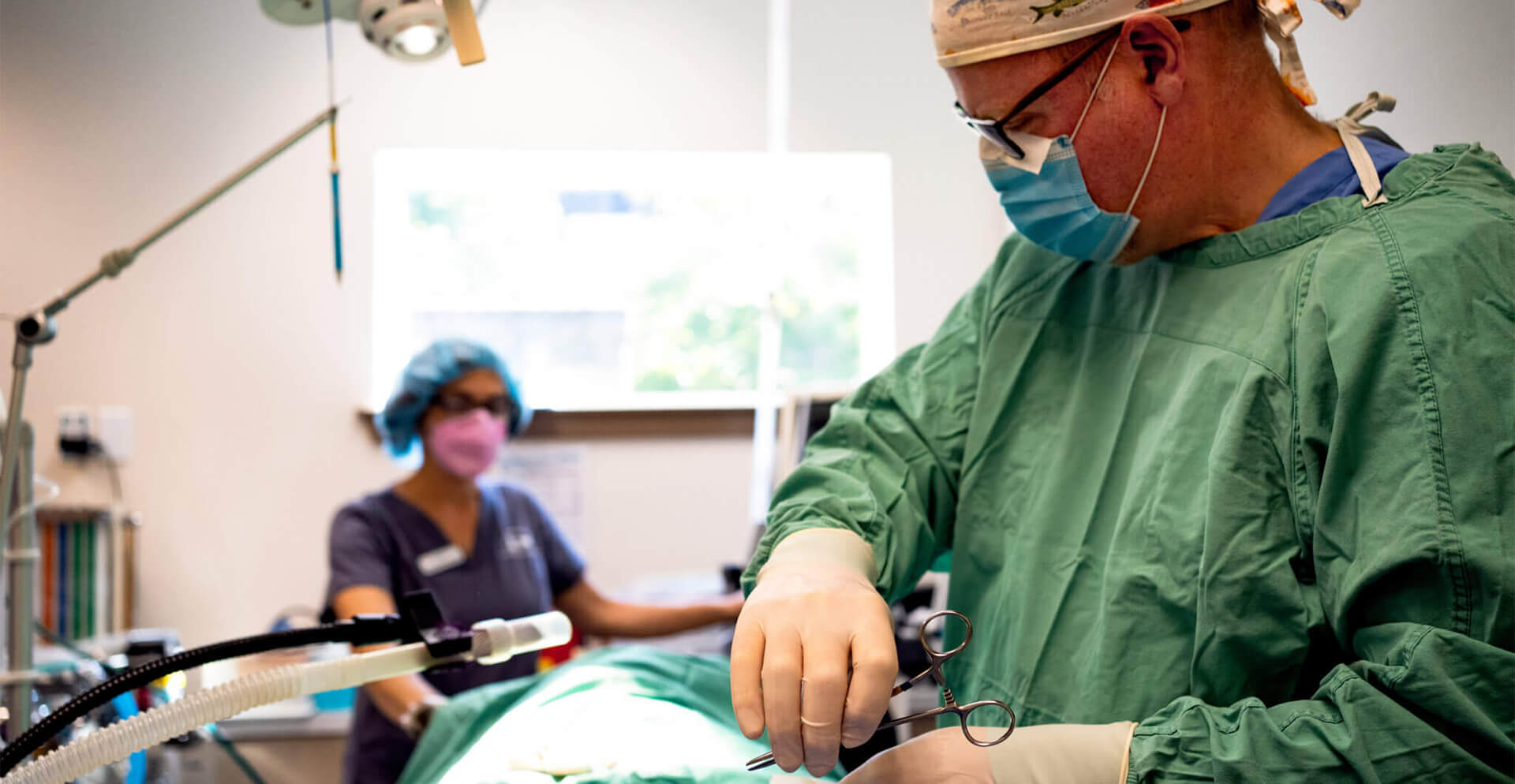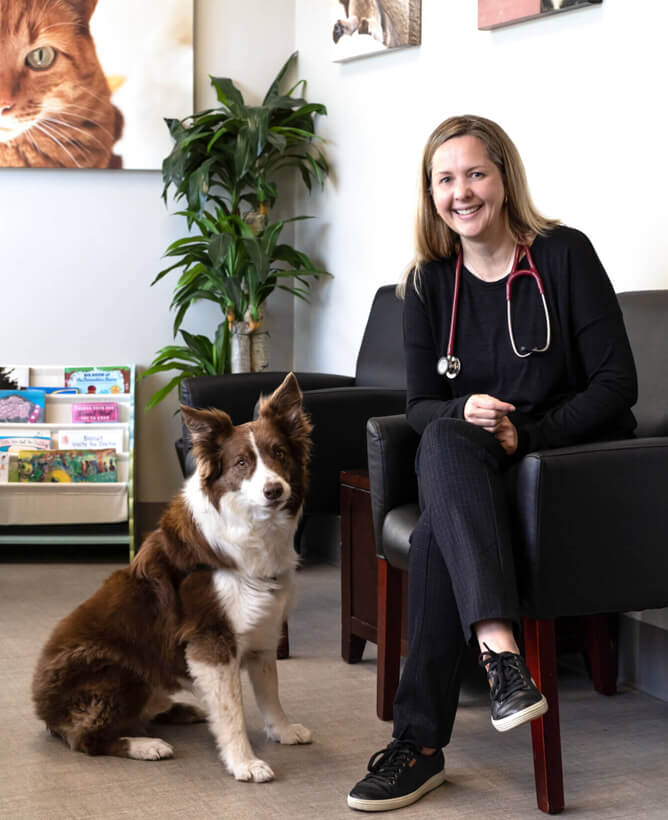
Choosing to spay or neuter is an important decision.
There is currently much debate in the veterinary community about the ideal time to spay or neuter your dog. Historically, six months was standard. With new research being done, we now recommend having a conversation to discuss the timing of this surgery with your veterinarian. There may be reasons to wait until 12 or even 16 to 18 months. For cats, the recommendation is to spay or neuter at 6 months of age.
Neutering
Castration surgery involves the removal of both testicles, leaving an empty scrotal sac that typically atrophies and shrinks. There are numerous reasons for castration, the most common being associated with behavior: mostly to reduce roaming and spraying (territory marking) in cats, increase cooperation in training the young male dog or reduce the chance your pet will establish some undesirable habits. It is an elective surgical procedure that lowers testosterone in the young male in order to help prevent roaming, aggressiveness, urine marking, and mounting. It will also result in a sterile pet several months after surgery that cannot reproduce or sire puppies or kittens.
Spaying
An ovariohysterectomy involves the surgical removal of the uterus and ovaries. It is a major abdominal surgical procedure that is routinely performed in our general practice. Another surgical option for spaying is an ovariectomy performed laparoscopically. This involves removal of both ovaries in a minimally invasive approach and is available to most dogs over 20 pounds.
In the healthy female, the principal objective is the prevention of heat (estrus) and the accompanying associated problems such as: bloody discharge (3-4weeks in dogs), attraction of males, accidental mating, unplanned pregnancy, and pyometra (infection of the uterus).
It is highly advised to schedule the procedure only after consulting your doctor, discussing your goals for timing the surgery, and reviewing any questions or concerns you may have. The surgery is safest and easiest on your pet when she is not active in her in heat/estrus cycle.
There is no proven behavioral or personality advantage to breeding your dog or cat or to the experience of her delivering and carrying for a litter of puppies or kittens.

Northwest Veterinary Hospital
Call/Text: 206-545-4255
Fax: 206-545-4205
